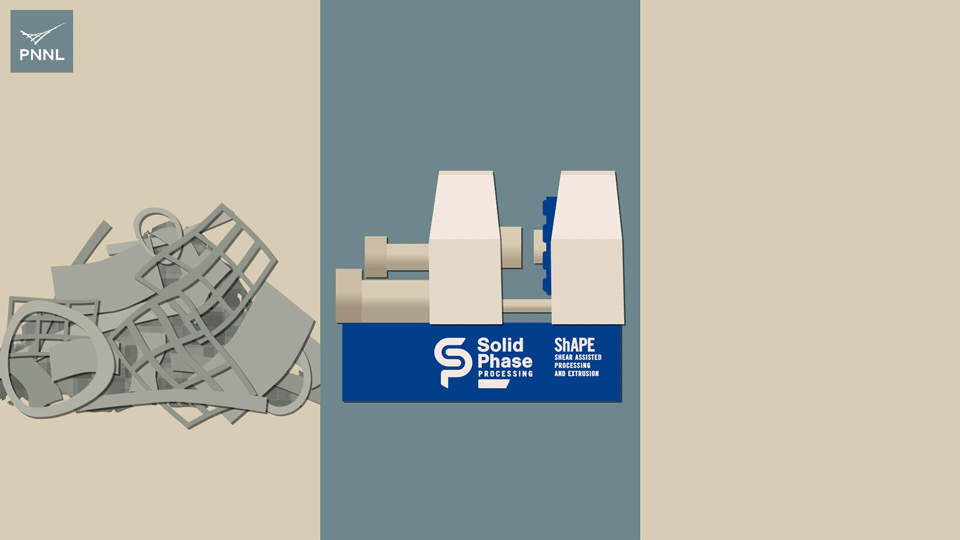Recycled Aluminum Offers Energy, Emissions and Electric Vehicle Battery Range Savings
April, 2023
A new manufacturing process produces high-strength aluminum vehicle parts that lower costs and are more environmentally friendly.
Author: Karyn Hede, PNNL
Scrap aluminum can now be collected and transformed directly into new vehicle parts using an innovative process being developed by the automotive industry, in particular for electric vehicles. Today, the Department of Energy’s Pacific Northwest National Laboratory, in collaboration with leading mobility technology company Magna, unveils a new manufacturing process that reduces more than 50% of the embodied energy and more than 90% of the carbon dioxide emissions by eliminating the need to mine and refine the same amount of raw aluminum ore. Lightweight aluminum can also help extend EV driving range.
This patented and award-winning Shear Assisted Processing and Extrusion (ShAPE™) process collects scrap bits and leftover aluminum trimmings from automotive manufacturing and transforms it directly into suitable material for new vehicle parts. It is now being scaled to make lightweight aluminum parts for EVs.

The most recent advancement, described in detail in a new report and in a Manufacturing Letters research article, eliminates the need to add newly mined aluminum to the material before using it for new parts. By reducing the cost of recycling aluminum, manufacturers may be able to reduce the overall cost of aluminum components, better enabling them to replace steel.
The new report and research publications mark the culmination of a four-year partnership with Magna, the largest manufacturer of auto parts in North America. Magna received funding for the collaborative research from DOE’s Vehicle Technologies Office, Lightweight Materials Consortium (LightMAT) Program.
Read the full press release at www.pnnl.gov.
More information can be found on the Magna awarded project page.